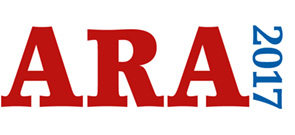Page Content

The origins of the Alberta Teachers’ Association are rooted in times of struggle and discontent but its future is as bright as ever.
That was the message shared at the Annual Representative Assembly (ARA) by Executive Secretary Gordon Thomas.
An avid historian, Thomas recounted in detail how the Alberta Teachers’ Association traces its roots back to 1916 when, in the midst of strife caused by the First World War, teachers were experiencing falling salaries and no employment security. At that time, if school boards couldn’t collect enough taxes, schools closed and teachers weren’t paid. Living conditions, especially in rural areas, were very poor, Thomas said. And the war extracted its toll as teachers signed up and didn’t come home.
“It should be noted that grain prices were high, crops had never been better and the economy was doing very well in Alberta — for everyone but teachers, it seemed,” Thomas said.
This situation led to teachers highjacking the 1916 annual general meeting of the Alberta Education Association in order to pass a motion to establish a provincial teachers’ organization. The Alberta Teachers’ Alliance (which later became the Association) was officially incorporated in 1918.
The Alliance quickly staked out core values and beliefs that are still central to the organization today. “We aspire to be a fully unified profession, where all teachers work together collegially,” Thomas said. “The organization is the authority on education in Alberta; we are masters of our professional practice.”
However, as he did last year, Thomas warned of growing tensions in schools between central office staff and schoolbased personnel.
“We are receiving more and more reports about topdown management by superintendents and boards,” he said.
Thomas noted that the School Act does not separate principals from teachers, that the principal is the principal teacher in the school and the superintendent is the instructional leader in the school system, not the autocratic pedagogue.
“Teachers need to be respected for their professional judgment and given the freedom to teach, not given pedagogical marching orders,” he said. “In many jurisdictions, this issue needs immediate attention. There needs to be an effort to restore collegial relations and respect for professional judgment and professional autonomy.”
Despite the warning, Thomas said the future of the profession is bright.
“I’ve never been as proud to be a teacher and I’ve never been as optimistic about the future of our profession as I am today,” he said. “The reason for this is very simple. It’s sitting in front of me. It’s you.”
Thomas, who will retire next year, noted that he received his bachelor of education degree in the first year that it was the minimum requirement to be a teacher. Less than a decade before that, the requirement had been a single year of teacher education.
“I have watched the profession grow over my career and I’ve watched as we just keep getting better at what we do as teachers,” he said.
“Each generation stands on the shoulders of the generation that came before it, continuing to build our profession, reaching to meet student learning needs and changing lives.”
He concluded by thanking his colleagues “for the honour to serve you” and wished them all well.
“May you find happiness and success in your chosen vocation, and may your commitment to your profession and this great Association never die.” ❚
